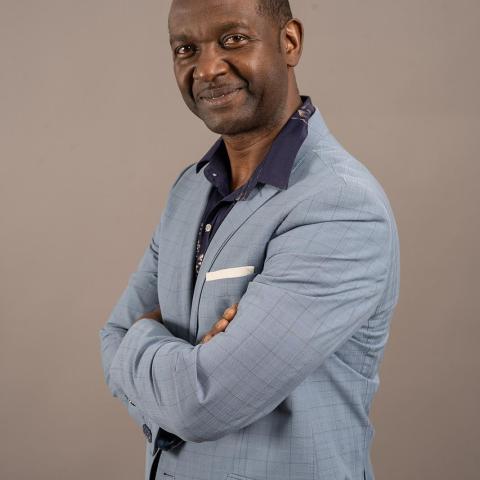To understand and address internalized racism, we must be aware of other factors at play.

Learning
In my first job at a grocery store in 2001, I was a deli manager and front-of-house supervisor. One day, a customer came looking for a product and wanted to talk to the manager. When I told her I was the manager, she told me that she wanted to talk to the “real” manager! I called our store manager to help her as I pondered what had just happened. As a Black man, my belief in myself and confidence were shattered, and it took a long time to get them back.
Race is a social and political construct grounded in a history of oppressor/oppressed relationships based on physical characteristics. It leaves people of colour with a very limited sense of self, which can undermine our belief in our full humanity and disrupt our understanding of our inner life.
Experiences of racism make weapons of our own minds. In particular, internalized racism manifests in a few ways, but especially in
- having a sense of inferiority to other human beings
- always seeing ourselves as victims and denying our own power to transform a situation or failing to take responsibility for our own roles as victimizer or colluder with oppression
- being overwhelmed and drained by the emotions we must navigate because of having this limited identity thrust upon us
- focusing on “reading” and trying to change White people, thus leaving less time, energy, and resources for self-development
To understand and address internalized racism, we need to be aware of other factors at play:
- As people of colour are victimized by racism, we are faced with mental health issues that are not approached appropriately in minority communities. We develop ideas, beliefs, actions, and behaviours that support or collude with racism.
- This system of oppression often coerces us to let go of or compromise our own better judgment, thus diminishing everyone as the diversity of human experience and wisdom is excluded.
- Equally harmful, the system can trap people and communities of colour in an oppositional stance that undermines creativity. Situations are seen through a limited victim/perpetrator lens that cuts us off from the breadth of possibility.
Faith Reflection
Many within the Body of Christ have been forced to carry the burden of these injuries alone. But if racism affects one part of the body, it affects every part, no matter the hue.
If one member suffers, all suffer with it; if one member is honored, all rejoice together with it.
(1 Corinthians 12:26)
May we continue to have a deeper understanding of the Body of Christ that to God we are all created equal. May we be guided by the power of the Holy Spirit to not be limited by our skin colours. May the Almighty God give us the strength and wisdom to embrace each other’s cultures without judgment and criticism. May we remember to love one another as Jesus loved us all. May our understanding of race become a great source of love and the ability to treat our fellow human beings with God’s grace. We ask all the above through Christ our Lord. Amen.
Living It Out
Solutions that can be adapted to solve internalized racism include the following:
- Developing a clear sense of one’s racial identity, learning to value one’s ancestry, and drawing on the strengths of one’s culture support growth.
- Due to racism, people of colour too often do not have the ultimate decision-making power over the decisions that control our lives and resources. We need to strive to be part of leadership in the decision-making bodies.
- Within racist systems, resources (money, time, salaried work, information, connections, etc.) are unequally in the hands and under the control of White people. Starting our own businesses is one way people of colour can gain some of these resources.
- People of colour can create spaces to investigate and work toward dismantling oppression, particularly internalized racism and cross-racial hostility that limit us from being leaders in society.
- Self-expression in the form of reflective writing is one powerful way that we can start identifying and disputing damaging beliefs about our own culture and people.
- Inner wounds from internalized racism can be healed through spiritual and psychological practices like prayer, ritual, and meditation.
—Innocent Karuhanga (he/him) was born in Uganda and has lived in Canada for the last 23 years. He volunteers at Uganda Martyrs United Church of Canada as a council member and a building trustee, and is a member of the Intercultural Diversity Commission of Shining Waters Regional Council. He specializes in community development and event planning.